Amazing Companion Plants That Will Make Your Tomatoes Grow
Amazing Companion Plants That Will Make Your Tomatoes Grow
Tomatoes are a delicious and versatile vegetable that can be enjoyed in many different ways. But did you know that there are certain companion plants that can help your tomatoes grow better?
Companion planting is the practice of planting certain plants together in order to benefit each other. Some companion plants can help to attract beneficial insects, repel pests, or improve the soil quality.
In this blog post, we will discuss some of the best companion plants for tomatoes. We will also provide some tips on how to plant and care for these plants together.
Benefits of Companion Planting
There are many benefits to companion planting, including:
- Increased crop yields
- Improved plant health
- Reduced pest and disease problems
- Enhanced soil quality
- Increased biodiversity
Companion Plants for Tomatoes
Some of the best companion plants for tomatoes include:
- Basil: Basil is a well-known companion plant for tomatoes. It helps to repel aphids, mosquitoes, and other pests. Basil also enhances the flavor of tomatoes.
- Marigolds: Marigolds are another great companion plant for tomatoes. They help to repel nematodes, which can damage tomato roots. Marigolds also attract beneficial insects, such as ladybugs and lacewings.
- Chives: Chives help to repel aphids and other pests. They also improve the flavor of tomatoes.
- Garlic: Garlic helps to repel aphids, mosquitoes, and other pests. It also helps to improve the soil quality.
- Onions: Onions help to repel aphids, mosquitoes, and other pests. They also help to improve the soil quality.
- Borage: Borage helps to attract beneficial insects, such as bees and ladybugs. It also improves the flavor of tomatoes.
- Nasturtiums: Nasturtiums help to attract beneficial insects, such as ladybugs and lacewings. They also repel aphids and other pests.
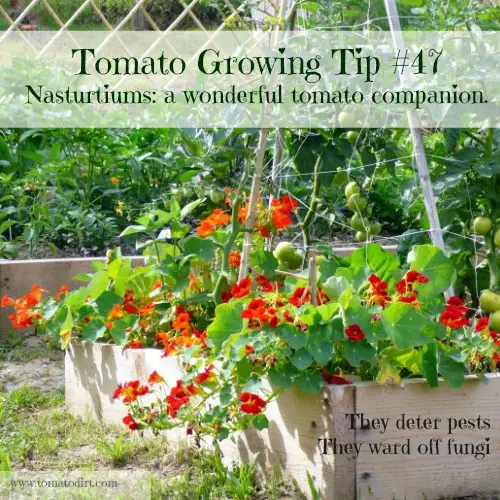
- Lettuce: Lettuce helps to suppress weeds and improve the soil quality. It also provides shade for tomato plants, which can help to prevent sunscald.
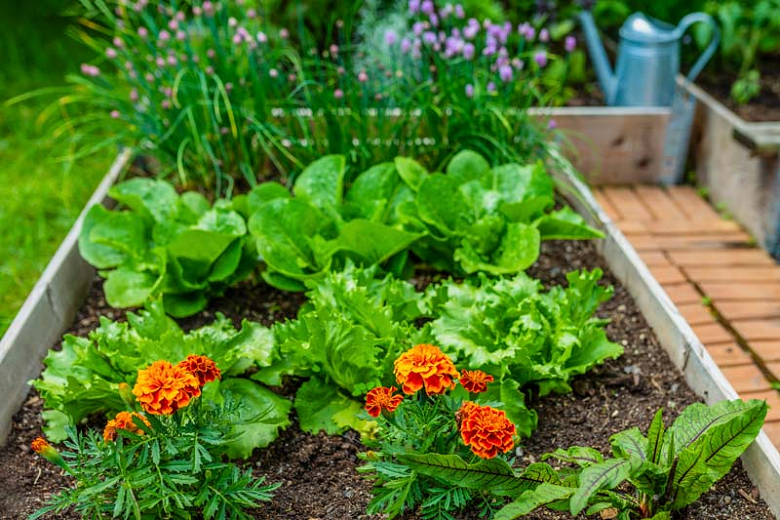
- Peas: Peas help to fix nitrogen in the soil, which can benefit tomato plants. They also provide shade for tomato plants, which can help to prevent sunscald.
How to Plant Companion Plants with Tomatoes
When planting companion plants with tomatoes, there are a few things to keep in mind:
- Choose companion plants that have similar growing requirements.
- Plant companion plants in a way that they will not compete for water or nutrients.
- Space companion plants appropriately.
- Mulch around the plants to help retain moisture and suppress weeds.
Conclusion
Companion planting is a great way to improve the health and productivity of your tomato plants. By planting the right companion plants together, you can help to attract beneficial insects, repel pests, and improve the soil quality.
With a little planning, you can create a thriving tomato garden that is full of delicious, healthy tomatoes.
Tomatoes are a delicious and versatile vegetable that can be enjoyed in many different ways. But did you know that there are certain plants that can actually help tomatoes grow better?
That's right, companion planting is a great way to improve the growth and productivity of your tomato plants. By planting certain companion plants near your tomatoes, you can help to attract beneficial insects, deter pests, and improve the overall health of your plants.
Some of the best companion plants for tomatoes include:
- Basil: Basil is a classic companion plant for tomatoes, and for good reason. Basil helps to repel pests like aphids and tomato hornworms, and it also enhances the flavor of tomatoes.
- Marigolds: Marigolds are another great companion plant for tomatoes. They help to deter pests like nematodes and whiteflies, and they also attract beneficial insects like ladybugs and bees.
- Borage: Borage is a flowering plant that is said to improve the flavor of tomatoes. It also helps to attract beneficial insects and repel pests.
- Peas: Peas are nitrogen-fixing plants, which means that they can help to improve the nitrogen content of the soil around your tomatoes. This can help to boost the growth and productivity of your plants.
If you're looking for more information about companion planting for tomatoes, I recommend visiting Gardenia Inspiration. This website has a wealth of information on the topic, including a list of the best companion plants for tomatoes, as well as tips on how to plant and care for them.
FAQ of tomatoes grow well with
Question 1: What plants grow well with tomatoes?
Answer: Tomatoes are compatible with a variety of plants, but some of the best companions include:
- Basil: Basil is a classic companion plant for tomatoes, and for good reason. It helps to repel pests, such as aphids and mosquitoes, and it also enhances the flavor of tomatoes.
- Cucumbers: Cucumbers and tomatoes have similar growing requirements, so they can be planted together. They also help to shade the soil around tomatoes, which can help to prevent diseases.

- Peas: Peas are nitrogen-fixing plants, which means they add nitrogen to the soil. This can benefit tomatoes, which are heavy feeders.
- Herbs: Other herbs that can be good companions for tomatoes include oregano, thyme, and rosemary. These herbs help to deter pests and diseases, and they also add flavor to tomatoes.

Question 2: What plants should not be planted near tomatoes?
Answer: There are a few plants that should not be planted near tomatoes, as they can compete for water and nutrients, or they can spread diseases. These plants include:
- Potatoes: Potatoes and tomatoes are members of the nightshade family, and they can harbor the same diseases. Planting them together can increase the risk of disease transmission.

- Eggplants: Eggplants are also members of the nightshade family, and they can compete with tomatoes for water and nutrients.
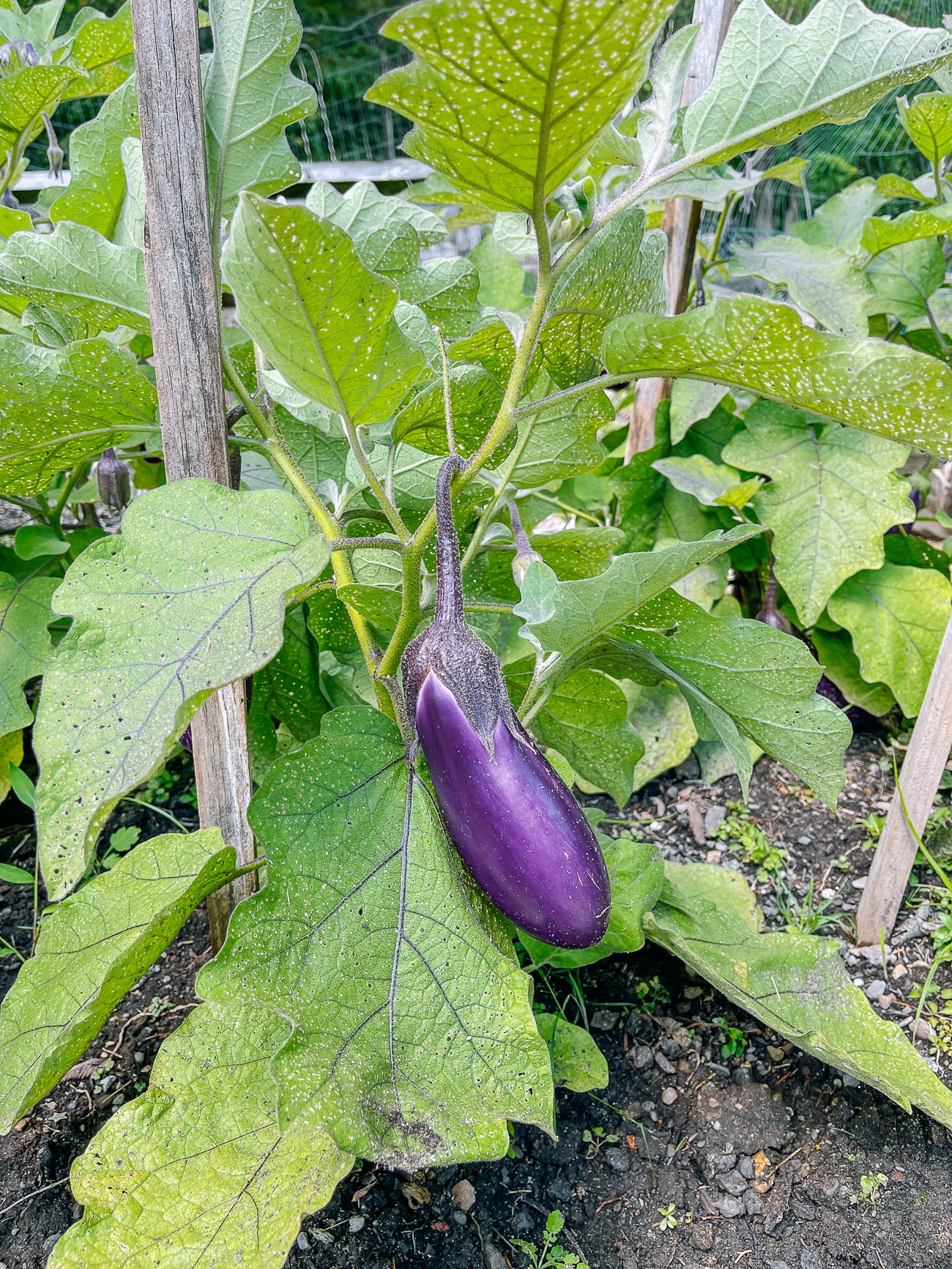
- Melons: Melons and tomatoes have different water and nutrient requirements, so planting them together can lead to problems.
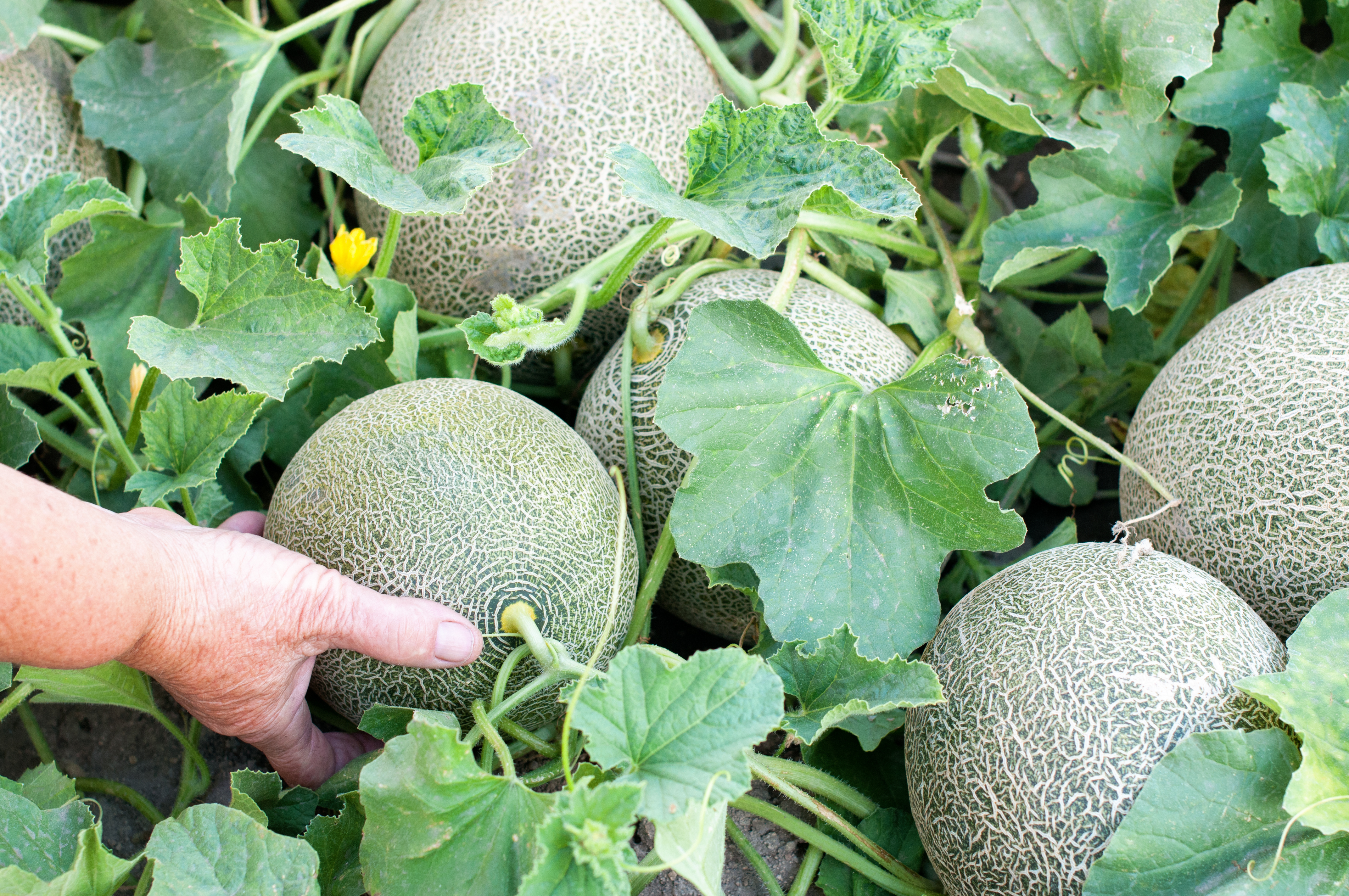
Question 3: How far apart should tomatoes be planted?
Answer: The spacing between tomato plants depends on the variety of tomato. However, as a general rule, tomatoes should be spaced 2-3 feet apart. This will give them enough room to grow and produce fruit.
Question 4: How much sun do tomatoes need?
Answer: Tomatoes need full sun, at least 6-8 hours of sunlight per day. If they don't get enough sun, they will not produce as many tomatoes.
Question 5: How much water do tomatoes need?
Answer: Tomatoes need regular watering, especially during the hot summer months. However, it is important to not overwater tomatoes, as this can lead to root rot. A good rule of thumb is to water tomatoes deeply once a week, or more often if the weather is hot and dry.
Image of tomatoes grow well with
- Basil: Basil is a classic companion plant for tomatoes. It helps to deter pests and attract pollinators, and it also tastes great when added to tomato dishes.
- Cucumbers: Cucumbers and tomatoes have similar growing requirements, so they can be planted together. They also help to shade each other, which can help to prevent blossom end rot in tomatoes.

- Lettuce: Lettuce is a good companion plant for tomatoes because it helps to suppress weeds and improve the soil quality. It also doesn't compete with tomatoes for nutrients.
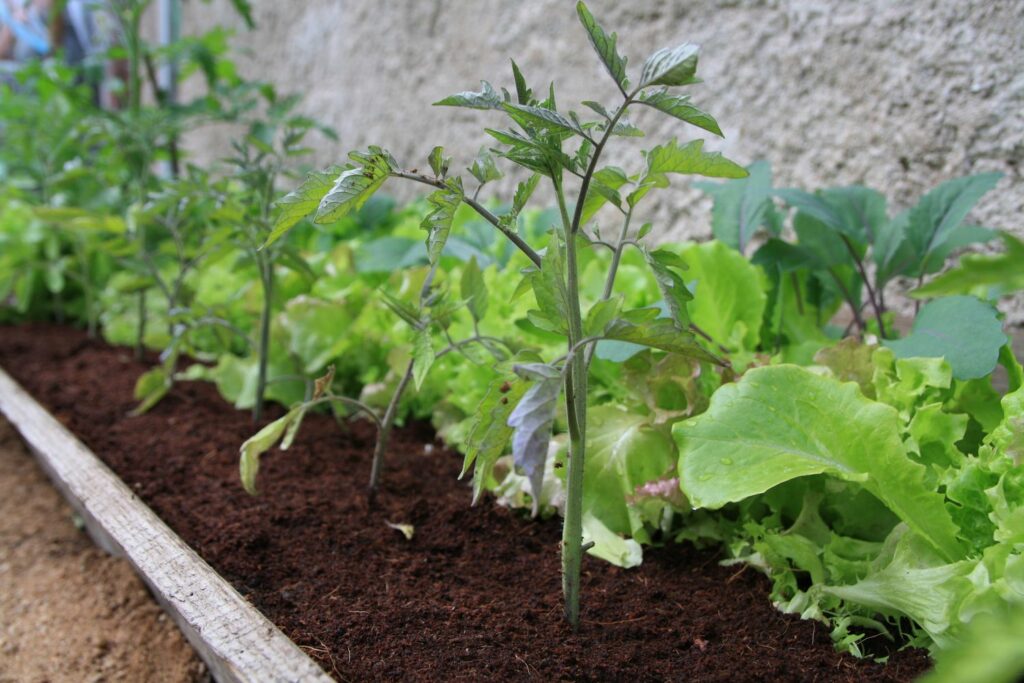
- Onions: Onions help to repel pests that can damage tomatoes, such as aphids and whiteflies. They also help to improve the flavor of tomatoes.
- Peas: Peas are a nitrogen-fixing plant, which means they can help to improve the nitrogen content of the soil. This can benefit tomatoes, which are heavy feeders.
Post a Comment for " Amazing Companion Plants That Will Make Your Tomatoes Grow"